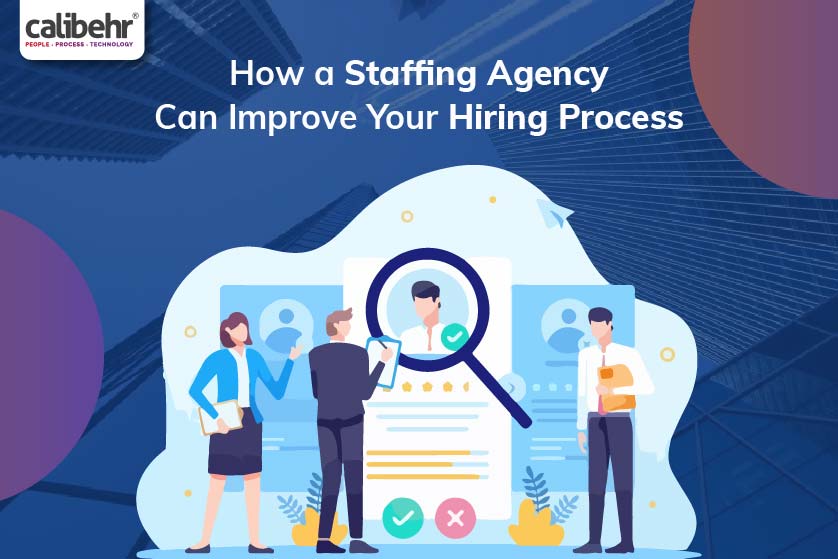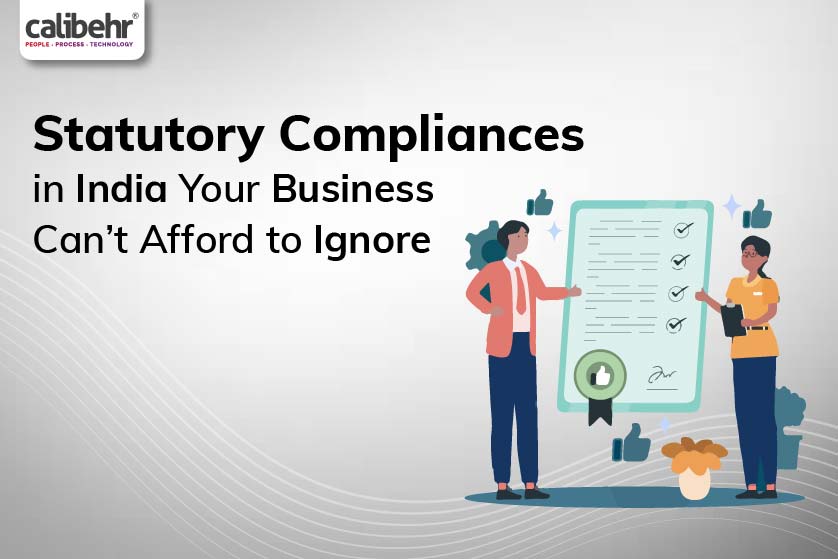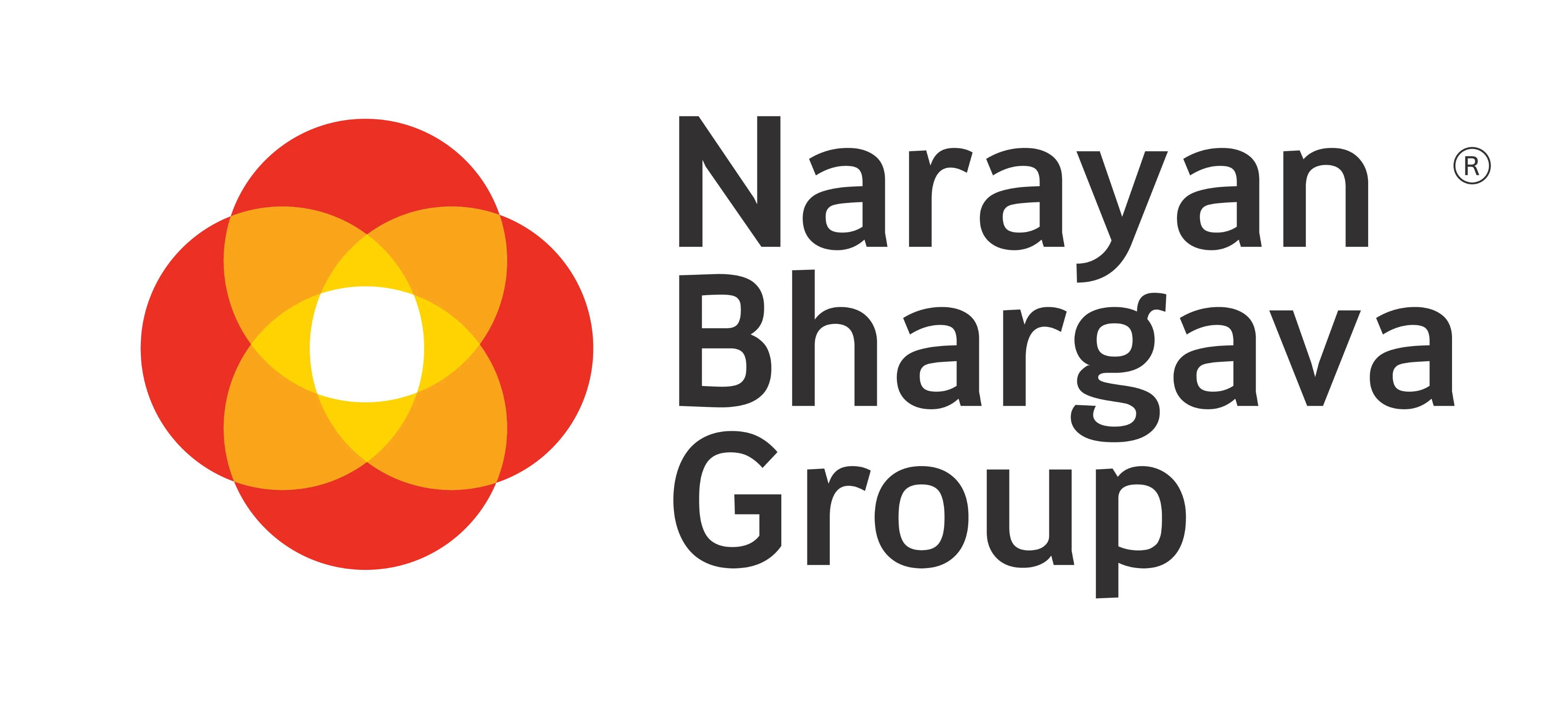Introduction
A 2023 Global Benchmark Survey from HireRight revealed significant insights about background screening. Here are the highlights:
- 86% of Indian respondents revealed that they faced employment discrepancies during screenings
- 43% observed education-related discrepancies
- 90% of Indian employers carry out employment and education checks
The survey primarily shows that identity, educational and job-related fraudulent activities are rampant in India’s job market. As per the report, a high percentage of leaders in India choose background verification. However, there are a lot many businesses that don’t. And this blog is for you, where we aim to tell you everything you need to know about employee background verification in India and much more.
What is Employee Background Verification?
Background verification is a process which companies use to check if the information shared by a potential candidate is true.
A resume consists of personal details, educational records, previous employment experience and references. Companies rely on background verification companies to authenticate the credentials shared by the applicant. Integrating background checks in the hiring process is necessary as avoiding it can lead to drastic consequences. For example, an employee with a history of criminal or fraudulent activities can damage the company's reputation and lead to monetary loss as well.
Leading IT companies like Accenture and Cognizant reportedly terminated employees over the submission of false documents recently. High involuntary attrition rates are also observed when companies fail to carry out thorough employee background checks.
Importance of Background Screening
Employees are a company’s greatest asset. Simply put, background screening helps your business to hire best employees. Hiring candidates with discrepancies can cause a lot of problems for an employer. For example, a lie about work experience in the resume means the company won’t be able to experience the expected impact. Work productivity will suffer, eroding client/customer trust and impeding overall growth.
As the job market becomes highly competitive and the need for building a robust workforce becomes essential, background check helps employers and hiring managers to make the right hiring decisions. It protects organizations from unwanted legal hassles, safeguards the workplace environment and mitigate risks. [Read more here: Importance of Pre-employment Background Verification Checks]
Is Background Verification Legally Required?
As of today, no law in India mandates companies to conduct background verification of prospective employees. Having said that there are industries like banks and healthcare where certifications and qualifications are mandatory to be given employment. ISO-27001-certified companies are also directed to do background checks according to the compliance requirements.
However, there is another side to the legal aspect of background checks: Data Privacy.
Is it legal for companies to collect and verify the personal and private information of potential employees? Can they store candidate data in their system? Are web-scraping and checking social media profiles in compliance with the law? These are pertinent questions as information around these topics are still ambiguous.
India’s IT Act & Sensitive Personal Data or Information (SPDI) Rules do cover some aspects of data privacy but not much. For example, it requires the collection and transfer of sensitive personal data only with the prior consent of the information provider, who in this case is the employee. The personal data, however, does not include documents generally collected by companies such as educational and professional details. As for social media and web checks, there are no legal restrictions currently.
In the immediate future, Personal Data Protection Bill, 2022, which is yet to become a law, is poised to make the process more transparent. At the same time, companies need to be aware of the background screening best practices, be sensitive to candidate privacy and comply with laws. We will keep you updated with the latest information on the Data Protection Bill and its consequences
These Top Industries had discrepancies percentages higher than the overall average of 9.74%:
o BFSI
o Manufacturing
o Healthcare
o Pharma
o Retail & Telecom
SOURCE: First Advantage
Types of Background Verification Services in India
On a case-to-case basis, companies opt for the customized matrix of background screening services to hire better and make the onboarding process faster. In this section, you will find different types of background verification services in India.
Typically, HR managers while conducting interviews come across candidate resumes which consist of personal details. Once the interview is done and the candidate is found suitable for the position, background screening is the next step.
Basic Background Verification Services
· Identity Verification
Identity verification makes sure that prospective employees who attended interviews are actually who they claim to be in their resumes. In the era of video interviews and remote hiring, identity verification has become a necessity. This is because scores of candidates provide false information, and use dubious methods while answering questions in interviews. Thus, an identity check ensures the information provided is accurate and the candidate is eligible for employment at your workplace.
· Address Verification
In a country like India, employees often hop from one city to another city, one state to another state and change offices within the region. Address verification helps in tracking the current and previous addresses plus permanent and temporary residential addresses as well.
In addition, knowing addresses helps in conducting criminal background checks. Companies can send offer letters, full and final settlement (F&F) documents and court notices in absconding cases.
· Academic Records and Certifications Verification
Academic records and certifications are verified to confirm if the skills and qualifications of candidates match the job requirements. It generally includes schools, colleges and universities, the year of passing and the places where the candidate has been – all important information for making informed hiring decisions. Plus, it gives insights about the institute where the candidate has learned and gained knowledge.
· Employment Verification
Employment verification is perhaps most important for employers to gauge the potential and performance of the candidate. It reveals if the skills, experience and talent showcased in the resume are indeed true or not. Plus, HR managers can cross-check with the previous employer about the attitude and potential of the candidate.
These are basic background verification services that companies need to embrace in their hiring process.
Advanced Background Verification Services
These are background screening services which need to be employed to gain deeper insights about the potential candidate. For example, if the basic verification is carried out and everything becomes clear, companies can go for the next level of verification which is discussed in this section.
· Criminal Records Check
There is a significant increase in the number of cases where businesses have suffered reputational damage and monetary losses due to employees with a criminal history. Plus, nefarious activities conducted inside a workplace environment can lower the morale of well-intentioned employees. This is precisely the reason why companies should do a thorough criminal records check before hiring.
Background screening experts can check a candidate’s criminal record at the local and national levels. Court record checks can help in knowing the criminal convictions or charges pending and not disclosed by the candidate. Ultimately, this type of criminal record verification helps companies assess the trustworthiness and integrity of candidates besides their skills and performance.
· Credit Background Checks
Credit background or credit history checks deal with verifying the financial records of the candidate. The potential candidate must not have any questionable finance-related history or cases as it will prevent companies from risks. If your business is into finance-related products or services, credit history check should be a top priority.
Other Background Verification Services
Some of the other background verification services include drug testing that deals with excessive use of alcohol and drugs by potential candidates. There is passport verification which helps companies operating in multiple nations to send employees for international business.
![]() Discrepancy in background screening was majorly at Associate Level
Discrepancy in background screening was majorly at Associate Level
SOURCE: First Advantage
Benefits of Background Verification
Companies implementing background verification in the hiring process reap the following benefits:
1. Better hire
First up, companies will be able to achieve the goal of quality hires. When the resume details are true, companies are certain of the potential of the candidate. Plus, they can expect that the employees will impact the company with their performance.
2. Brand Image
Background verification as a policy and a process can help companies to maintain their brand image. Additionally, it gives a good impression to stakeholders, associates and partners and boosts brand reputation.
3. Compliance
In some sectors like healthcare and banks, hiring should comply with the existing regulations. It prevents businesses from paying hefty penalties and fines, developing a culture of integrity.
4. Workplace Safety
Background screening promotes workplace safety. It helps employees to bond with like-minded and thorough professionals, be productive and contribute to their best of capabilities.
Challenges of Background Verification
Many businesses in India have integrated background verification into their hiring process, but face innumerable challenges, failing to hire the right people. In this section, we will discuss those challenges in detail.
1. Inaccuracies and Errors
For many companies, background verification is included for the sake of it. HR managers and leaders often skip this step which ends up costing a business a lot. If dedicated BGV experts are not available in-house, partner with a background verification services company. Else, the chances of inaccuracies and errors increase.
It is important for businesses to thoroughly assess if the background verification process is followed correctly or not.
Look at this example:
A background check report mentioned that the interviewed candidate had a court case in the past. However, they were dismissed and the candidate was acquitted. The candidate during the interview chose not to disclose the matter. In such complex scenarios, companies need to make good judgments on whether to hire the candidate or not. A mention of a dismissed court case in the report should not be the criteria based on which a company should reject a brilliant candidate.
2. Pan-India and Global Background Verification
How can your company headquartered in Mumbai carry out background verification of a candidate residing in Delhi? Similarly, what if your company is hiring a senior manager who has global work experience? In such cases, in-house background verification may not work. A
third-party service provider with PAN-India and a global presence can help.
3. Incomplete Reporting
Incomplete reports create more headaches in the background verification field. But it does happen. Although background screening companies use the latest technology and advanced techniques to retrieve information, sometimes it may not be accurate.
Here’s the reason why: When background check experts seek individual data from government agencies, sometimes wrong information is passed on to the expert which translates into the main report, impacting the applicant’s future in the company.
4. Outdated Processes
Outdated and manual processes limit the efficiency of the background verification process. It is high time companies choose technology or tech-enabled service providers. Digital verification processes like KYC are the present and future of BGV process. Always partner with vendors who follow digital verification processes.
5. Lack of Company-wide Background Verification Policy
A company with many branches across India should have a company-wide background verification policy. It should lay down the steps to complete the verification process with precision and consistency.
![]()
Majority of discrepancy was found in applicants in the age bracket of 22 to 30 years old
![]() SOURCE: First Advantage
SOURCE: First Advantage
Developing Background Verification Policy in Your Organization
Developing a background verification policy essentially means documenting the objectives of conducting such a process. It helps organizations, in the long run, to keep the standards up and give clear direction to the HR leaders and hiring managers.
Here are some of the steps you can take to create a BGV policy for your organization:
· Company leadership, the Human Resource team and hiring managers should discuss what positions need the background verification process the most. Depending on your industry, this decision can be made. Experts suggest that all types of employees should be verified to eliminate the possibility of discrimination.
· Discuss and finalize the types of background screening services you need in the company. Are personal, professional and educational verification enough or do you need to go deep and make sure candidates do not have criminal background checks?
· Establish the procedure that will be followed while conducting background checks. Who will be responsible for the process? Who will review the BGV report? What steps will be followed? Does your company require third-party background screening experts?
· Maintaining transparency is a best practice in background verification. Therefore, informing candidates before the process must be included in the procedure. Plus, candidates should be given the chance to defend themselves in case discrepancies are found.
· Keep a tab on the latest government rules and regulations and update the policy accordingly.
Once you prepare the policy, you can decide if you want to do the background screening of the candidates in-house or outsource the process to an experienced vendor.
In-house vs. Outsourcing Background Verification
Background screening is a critical task which needs a dedicated team of experts. Plus, it takes a lot of responsibility to execute the process professionally, legally and efficiently. Given the complexities involved plus changing data privacy laws, your organization should strategically make the move of outsourcing background verification rather than keeping it in-house. This will prove to be beneficial and profitable as explained in this section.
The majority of businesses are inclined to outsource background screening due to the following factors:
· Changing Workforce Trends – As workforce trends change, companies are hiring remote employees who work from home or follow the hybrid model. Also, employers in India are expanding to tier 2 and tier 3 cities in India, opening up centres and hiring from the small towns and cities of India. In such a scenario, dedicated background screening with a PAN-India presence can help your organization.
· Rules and Regulations – The rules and regulations related to employment and background checks in India will become stringent and complex in the future. The screening experts are qualified and experienced enough to ensure compliance in such cases and avoid potential penalties as well.
· Future Tech – Implementing technology will boost the background screening process efficiency. Third-party BGV vendors invest in the latest technology and tools to give the best and quick results to their clients. Investing in such technologies might be beyond the budget of some companies. In addition, companies may not have the resources who can operate new technologies successfully.
To remain competitive and focused on your core objectives, outsourcing non-core tasks like background screening is the way to go. Plus, businesses, especially small and medium in size can achieve cost efficiency with outsourcing when compared to in-house training and building a BGV team.
How to Choose a Background Verification Service Provider
If you think outsourcing is the better option, here’s our guide on how to choose a background verification service provider:
1. Make a BGV Policy
We have already discussed how to make a BGV policy for your organization. Once you have documented the same and made it official, seek a background screening service provider who can deliver the set objectives.
2. Trust and Reputation
As is the norm, always choose background screening experts who have credibility in the market. Word of mouth is a good way to find trusted firms. Plus, run an online search to find the reputation of the firm. A major advantage of trusted and reputed companies is that they offer superior services which are in sync with the latest trends.
3. Experience
Experience in the background verification field is a treasure you must weigh in before making the final decision. Experienced screening experts have good contacts and partnerships, plus they use the latest technology that makes the process efficient and faster.
4. Best Practices
Ask the potential vendors what process they follow. The background verification companies must implement best practices in their procedure. If your organization is aiming for ISO certification, the service provider must offer their services per the requirement. They should also be able to change their process with the changing data privacy rules and regulations in India.
5. Technology and TAT
Does the background screening company use the latest technology, automation tools and software to simplify the process? This is an important question to ask the potential vendor. Once you know what technologies are used, seek the Turn Around Time (TAT) that they can achieve. This is because TAT matters in the background verification process.
Have a transparent discussion about what you want to achieve with the BGV process. Set clear goals. If your vision aligns with the background screening company’s strategy, make a formal agreement.
Background Verification: How does it Work?
Here’s how background verification works:
Ø Inform the candidate and obtain consent to do background verification
Ø Request personal and professional details and start the verification process to confirm if the details shared are authentic
Ø Conduct the types of verification you have decided as per the company policy
Ø Document the candidate verification process
Ø Make the final report and share it with the concerned manager plus the candidate
![]() Top Industries that Rely on Background Verification in India
Top Industries that Rely on Background Verification in India
ü IT
ü BFSI
ü Healthcare
ü Education
ü ![]() Government Hiring
Government Hiring
The Future of Background Verification: Technology and Tools
The future of background verification is about integration of digital technologies. Aadhaar cards and associated individual data have opened the door for background screening experts to leverage automation and digitization tools to extract data in a quick time. As a result, the turnaround time has been reduced, the quality of checks improved and companies have observed better hiring.
How AI is helping background verification services? AI tools can scourge through the vast quantity of data available online and on social media platforms, thereby making the process faster and more efficient. Plus, it automates the repetitive tasks and assists hiring managers to make better hiring decisions.
Conclusion
At the global and domestic levels, there’s a substantial increase in the number of employee frauds – resume lies, sensitive data leaks, and criminal activities – causing millions and billions of monetary losses for companies. Therefore, meticulous background screening is essential. There’s a lot a business can gain by streamlining the background verification process and partnering with a background screening service provider. With the growth of technology like AI, more fraudulent activities are expected. It is high time to implement the employee verification best practices to protect your business.
Want to build a professional workforce consisting of real people with real talent? Partner with Calibehr, one of the leading tech-enabled background screening companies in India helping national and international brands. Contact us for information.








